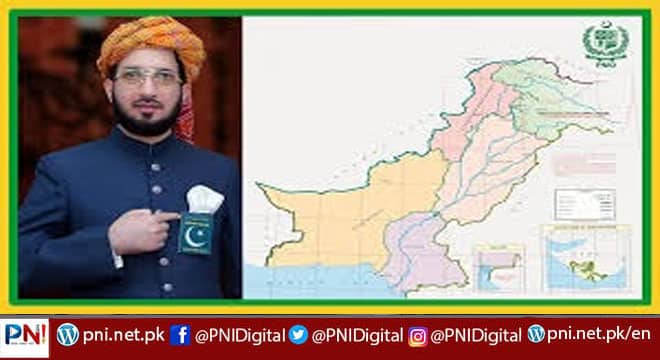ISLAMABAD, Nov 9 (APP):Dewan of Junagadh Sahibzada Sultan Ahmed in a letter to the Secretary General United Nations Antonio Guterres demanded a special session of the United Nations to rediscuss the issue of state of Junagadh for its resolution through pacific means.
He stated in his letter written on Monday that the State of Junagadh would like to reiterate the following for the perusal of the United Nations Secretariat: the United Nations should take immediate and adequate steps to reaffirm respect for the sovereignty, territorial integrity, and political independence of the Junagadh State.
A fact-finding Commission or Inquiry Commission should be established by the United Nations regarding Junagadh issue.
A resolution should be passed to declare Junagadh as an occupied territory.
The steps taken by India for the illegal occupation of Junagadh should be declared null and void.
The immediate withdrawal of the illegal Indian occupying forces from the Junagadh territory should be considered and implemented and the sovereign ruler of the Junagadh state should be restored to his legal position.
Junagadh issue as an agenda should be included in the Agenda List of the UN and Nawab of Junagadh should be given compensation regarding the State wealth plundered by the Indian occupying force.
The architectural and national heritage of Junagadh State should be restored and India should be held accountable for not preserving the heritage.
Junagadh State is a Pakistan territory in accordance with all canons of international law. Therefore, the Indian map showing Junagadh as her territory should not be allowed in all the United Nations missions abroad.
According to the letter, the United Nations marked its 76th anniversary on October 24, 2021.
The organization was founded to, as the preamble of the charter puts it, “save the succeeding generations from the scourge of war.
“In the last 76 years, United Nations has worked to protect human dignity, protect human rights, respect international law, and save humanity from war. United Nations peacekeeping missions have been instrumental in complex peacebuilding and taking a wide variety of tasks such as achieving and monitoring a ceasefire between two regular armies, disarmament, demobilization, reintegration, election monitoring, judicial, and security sector reforms.
Since its membership on September 30, 1947, Pakistan has been an active member of the United Nations and its specialized agencies. As the largest troops contributing member to the UN peacekeeping operations, Pakistan’s commitment to the international peace and security. Pakistan has participated in 41 peacekeeping missions in 23 countries, with over 150,000 peacekeepers, some deployed in the most difficult and trying conditions.
Pakistan is the sixth largest police contributor in UN peacekeeping. Likewise, Pakistan is actively working with the global community in the campaign against international terrorism and other related challenges. Pakistan continues to support the need for dialogue, diplomacy, and international cooperation to address existing and emerging international challenges, in an effective and credible manner on the basis of consensus and concerted collective actions.
The Jammu & Kashmir and Junagadh conflicts between Pakistan and India are the oldest issues on the agenda of the United Nations. Both disputes are unfinished agendas of the partition of the Indian subcontinent. According to the Indian Independence Act of 1947, the princely states were given the choice to remain independent or accede to either of two new dominions, India or Pakistan.
The then sovereign of Junagadh State, His Highness Nawab Mahabat Khanji, reached an agreement with the then sovereign of Pakistan, His Excellency Quaid-e-Azam Muhammad Ali Jinnah, regarding the accession of the Junagadh State to Pakistan.
Junagadh State became the first princely state to accede to Pakistan on September 15, 1947, and the flag of Pakistan was listed on the State House of Junagadh.
As a result, Junagadh state officially became part of Pakistan and as per the instrument of accession, foreign affairs, defense, and communication were conceded to the Government of Pakistan while the rest of policy matters of the State of Junagadh were to be managed by the Nawab of Junagadh. Not pleased with the accession decision, India applied the economic blockade of the State of Junagadh in order to spark reaction and chaos in the State to create a pretext for Indian interference.
While Nawab of Junagadh was in Karachi, the then Capital of Pakistan, to discuss further policy matters, 5000 Rashtra Hindus were sent by the Indian Government to the Junagadh State and forced the administration of Junagadh State to leave their state, thereby systematically disempowering the local administration from their rights. Indian Army advanced its troops into Junagadh State on November 9, 1947 and hoisted its flag on the Junagadh State House. It was the first violation of Pakistan’s sovereignty and international borders at the hands of the Indian armed forces.
Soon after the blatant violation of justice and fair play, the matter was raised at the United Nations for redress as it was a clear violation of an international treaty signed between two sovereign heads of states governed by international laws. The United Nations Security Council in its meeting on February 18, 1948 discussed in detail the issue of Junagadh’s illegal occupation.
Though United Nations actively took up both Jammu & Kashmir and Junagadh issues in its earlier years, yet both matters have lost their due attention despite the severeness of the consequences attached to these issues. The regional peace and security of South Asia are dependent upon the resolution of these outstanding conflicts. Pakistan and India are at loggerheads because of these outstanding disputes.
Follow the PNI Facebook page for the latest news and updates.









